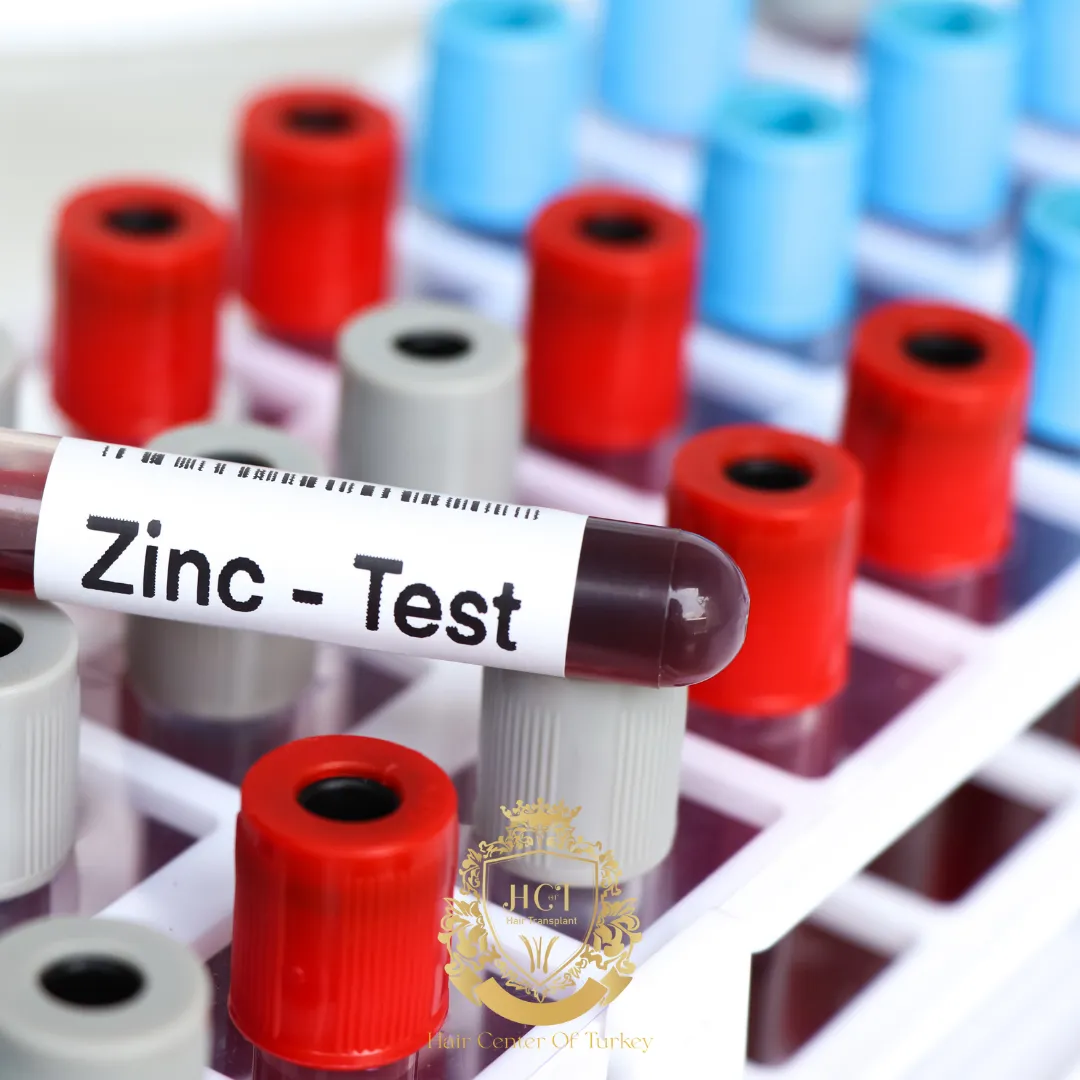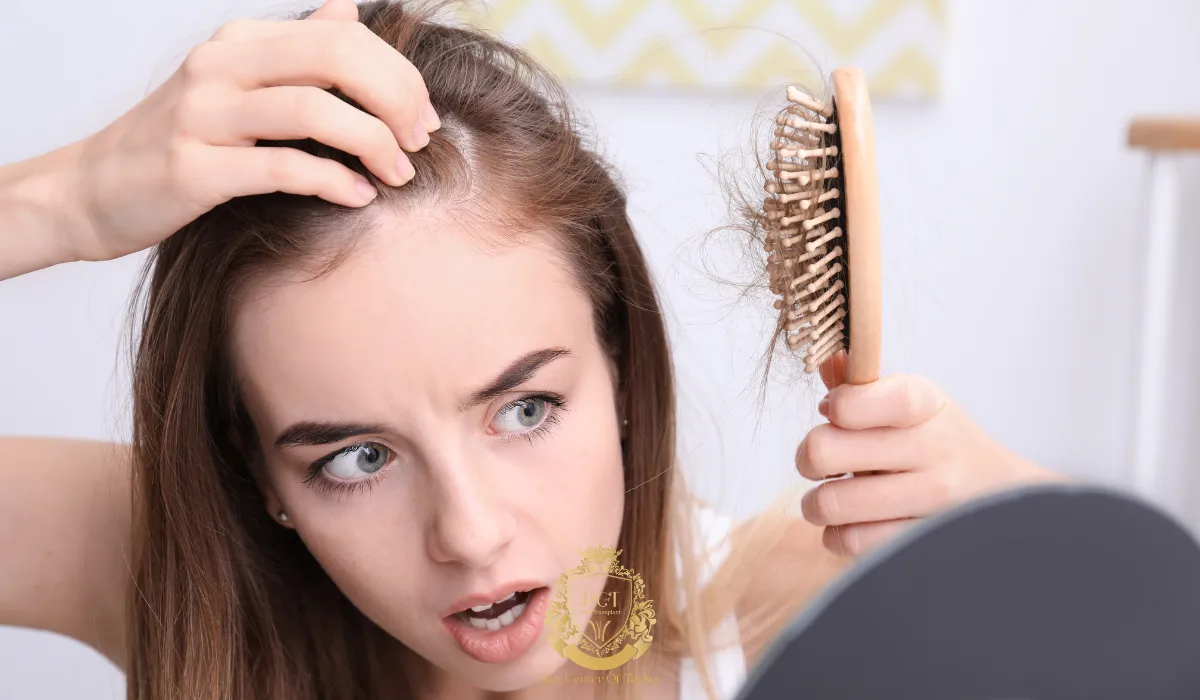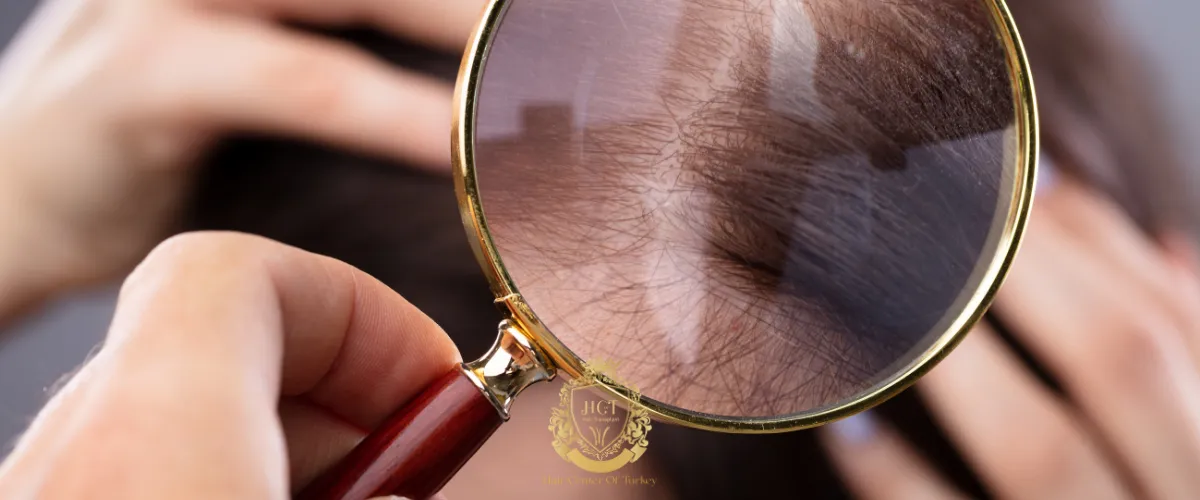
Zinc And Hair Loss
Zinc supports hair-follicle function, protein synthesis, and healthy cell growth. When zinc levels drop too low, some people develop increased shedding or diffuse thinning—often alongside other symptoms like poor wound healing or skin changes. Correcting a confirmed deficiency can improve hair shedding, but zinc alone won’t treat genetic pattern baldness.
Why Zinc Matters For The Body
Zinc is an essential trace mineral found in every cell. It helps the body make DNA and proteins, supports normal growth and development, and plays a central role in immune function and wound healing.
Because the body doesn’t store large amounts of zinc, regular intake from food is important. Long periods of low intake, poor absorption, or higher needs can gradually lead to deficiency.

Table of Contents
How Zinc Supports Hair Follicles
Hair follicles are among the most active tissues in the body. They rely on steady cell division and protein production to build new hair fiber.
Zinc contributes to these processes and supports keratin production, the main structural protein in hair. Low zinc may also increase inflammation in the scalp in some people, which can worsen shedding.

Can Low Zinc Cause Hair Loss?
Low zinc status is associated with several hair-loss patterns, most commonly diffuse shedding (telogen effluvium). It has also been reported in people with alopecia areata and other inflammatory scalp conditions.
A zinc deficiency is rarely the only driver of hair loss. Stress, rapid weight loss, iron deficiency, thyroid disease, postpartum changes, medications, and genetics can all contribute. If shedding is new or persistent, it’s worth addressing the broader picture rather than relying on a single nutrient.

Common Causes Of Zinc Deficiency
Zinc deficiency can develop for several reasons:
- Inadequate intake (limited animal foods, restrictive diets, low overall calories)
- Reduced absorption (for example, gastrointestinal conditions that affect nutrient uptake)
- Increased requirements (growth, pregnancy, breastfeeding)
- Long-term illness or frequent infections
- Certain medications that interfere with absorption or increase losses
People who follow vegetarian or vegan diets may need extra attention to zinc intake because phytates in grains and legumes can reduce absorption. Using preparation methods like soaking, sprouting, fermenting, and choosing leavened breads can help improve bioavailability.

Signs You Might Be Low In Zinc
Hair And Scalp Signs
- More shedding than usual (especially diffuse shedding rather than patches)
- Noticeable reduction in hair density over time
- Dry, dull, or brittle hair that breaks more easily
- Slower regrowth after a shedding episode
Other Possible Signs
- Slow wound healing
- Skin changes or rashes (including dermatitis)
- Frequent infections or getting sick often
- Reduced sense of taste or smell
- Loss of appetite or unintentional weight changes
- Digestive issues such as diarrhea (more common in severe deficiency)
These symptoms are not specific to zinc deficiency. Blood work and a clinical evaluation are the safest way to confirm whether zinc is a likely contributor.
How Much Zinc Do You Need?
For most adults, the recommended daily intake is about 8 mg per day for women and 11 mg per day for men. Needs can be higher during pregnancy and breastfeeding, and vary by age.
More is not better. The tolerable upper intake level for adults is 40 mg per day from all sources. Long-term high doses can cause nausea and can interfere with copper absorption, which may lead to anemia and nerve issues.
Best Food Sources Of Zinc
Food is the best first-line way to maintain healthy zinc levels. Strong sources include:
Top Animal-Based Sources
- Oysters and other shellfish
- Beef and lamb
- Poultry
- Crab and lobster
- Yogurt and other dairy

Top Plant-Based Sources
- Pumpkin and sesame seeds
- Chickpeas, lentils, and other legumes
- Fortified cereals
- Nuts and whole grains
If you rely mostly on plant foods, aim for a mix of zinc sources throughout the day and use techniques like soaking or sprouting beans and grains. Pairing plant zinc sources with adequate protein can also support better overall nutrient status.
Should You Take Zinc For Hair Loss?
Zinc supplements can be helpful when a deficiency is confirmed or strongly suspected. In those cases, correcting the deficiency may reduce shedding and support regrowth over time.
Zinc supplementation has not been proven to stop or reverse androgenetic (pattern) hair loss. For pattern hair loss, evidence-based options include topical minoxidil, and—when appropriate—prescription treatments such as finasteride under medical supervision.
Before supplementing, consider speaking with a clinician, especially if you are pregnant, have a chronic condition, or take medications. Zinc can interact with certain antibiotics and other drugs, and the dose and duration should match your individual needs.
F.A.Q.
How much zinc should I take for hair loss?
Take 8 mg/day (women) or 11 mg/day (men); supplement only if deficient.
Can too much zinc cause hair thinning?
Yes—chronic high-dose zinc can cause copper deficiency, which may trigger hair thinning.
Is zinc better than biotin for hair loss?
No—neither is proven; zinc helps mainly in deficiency, and biotin deficiency is rare.
Should I take zinc if my hair is falling out?
Only take zinc if testing or clinician suggests deficiency; otherwise address other hair-loss causes.
Does zinc thicken your hair?
Zinc doesn’t directly thicken hair; correcting deficiency can normalize growth and reduce shedding.




